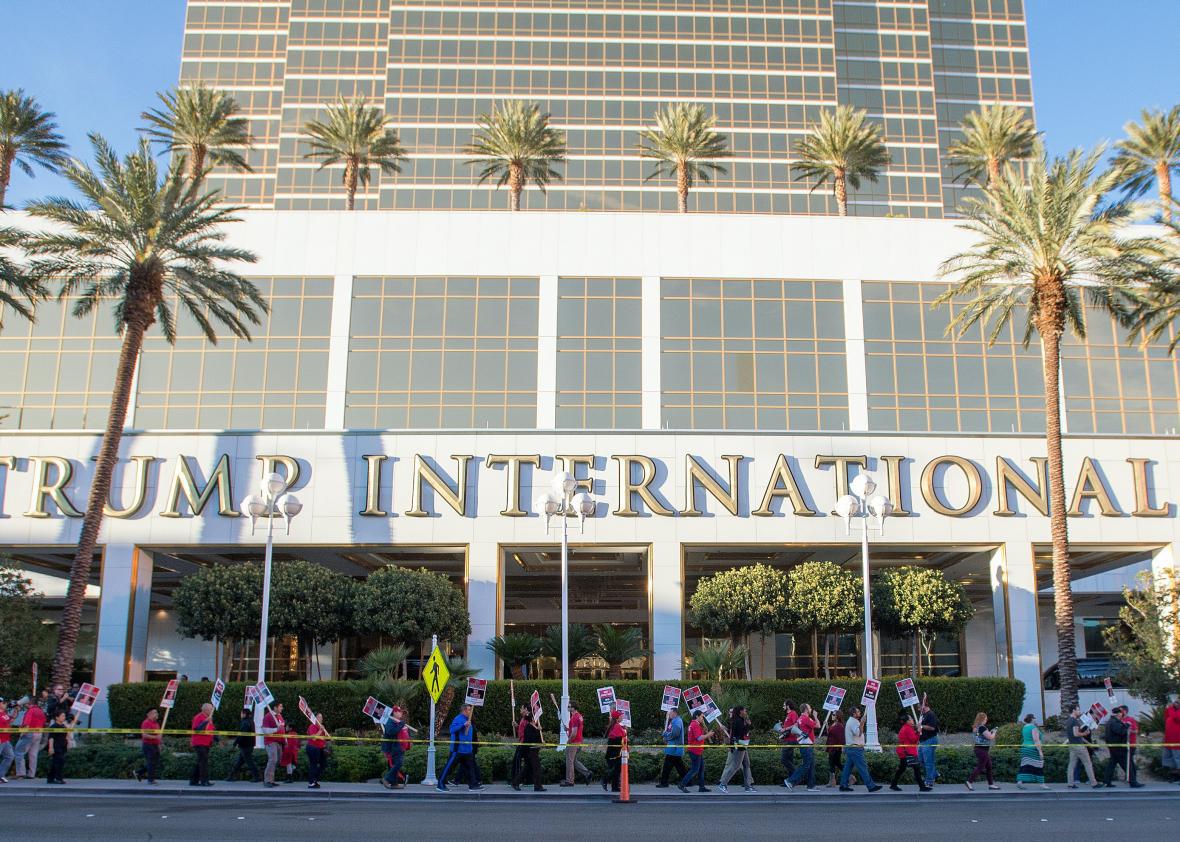Donald Trump’s Las Vegas hotel agreed on Wednesday to a four-year contract with the union representing its employees, concluding a two-year battle that faced the specter of becoming one of the President-elect’s most glaring conflicts of interest.
The Unite Here Culinary Workers Union Local 226 announced that it had agreed with the hotel’s management to a contract that would run from January 1, 2017 through May 31, 2021 and “provide the employees with annual wage increases, a pension, family health care, and job security.”
More than 500 Trump hotel workers voted to unionize last December and became officially certified in April. The hotel refused to recognize the union and shortly prior to Trump’s election, the National Labor Relations Board ruled that it was violating the law with that refusal. Trump and his business partner Phil Ruffin appealed the ruling to the U.S. Court of Appeals for the District of Columbia.
As Slate’s Henry Grabar noted last month, the potential conflict of interest was an especially thorny one. There are two vacancies on the NLRB, which Trump is set to fill. In a year, the board’s general counsel—whose job it is to defend the NLRB against appeals’ such as Trump’s—would also vacate his job, which would then be filled by President Trump.
If Trump lost his case, meanwhile, and it was successfully appealed to the Supreme Court, his own justice department would have been tasked with defending the initial NLRB ruling against Trump at the high court.
Wednesday’s resolution appears to table that conflict through the end of Trump’s first term.
Grabar wrote why resolving the issue also made good political sense:
With regard to his Las Vegas hotel, Trump will get the kind of scrutiny than no anti-union manager ever relishes. That may be an advantage for Local 226, whose theatrical tactics—like lining up a wall of taco trucks outside the Trump Hotel in October—drew national attention during the campaign. Public confrontations with the union would stretch his claims to populism. Good-faith bargaining and a contract, by contrast, could provide a valuable moment of presidential PR.
Trump’s hotel had been accused of firing an employee who supported the union, though she was eventually rehired. The union has said that its employees were paid $3 less per hour than employees at similar Vegas hotels. In July, the New York Times reported that union officials said that the hotel had fought their collective bargaining efforts by “suspending union activists, committing unfair labor practices and unleashing an aggressive propaganda operation to deter workers from supporting the union.”
After a separate agreement with the D.C. local of the union, Trump’s new capital hotel said it would allow an “orderly organizing campaign” if its employees sought to unionize.
On Tuesday, the Washingtonian reported that the specialty magazine Luxury Travel Intelligence had recently ranked that D.C. hotel as the third-worst new luxury hotel in the world, writing “this place is not for the true discerning luxury traveller.”
